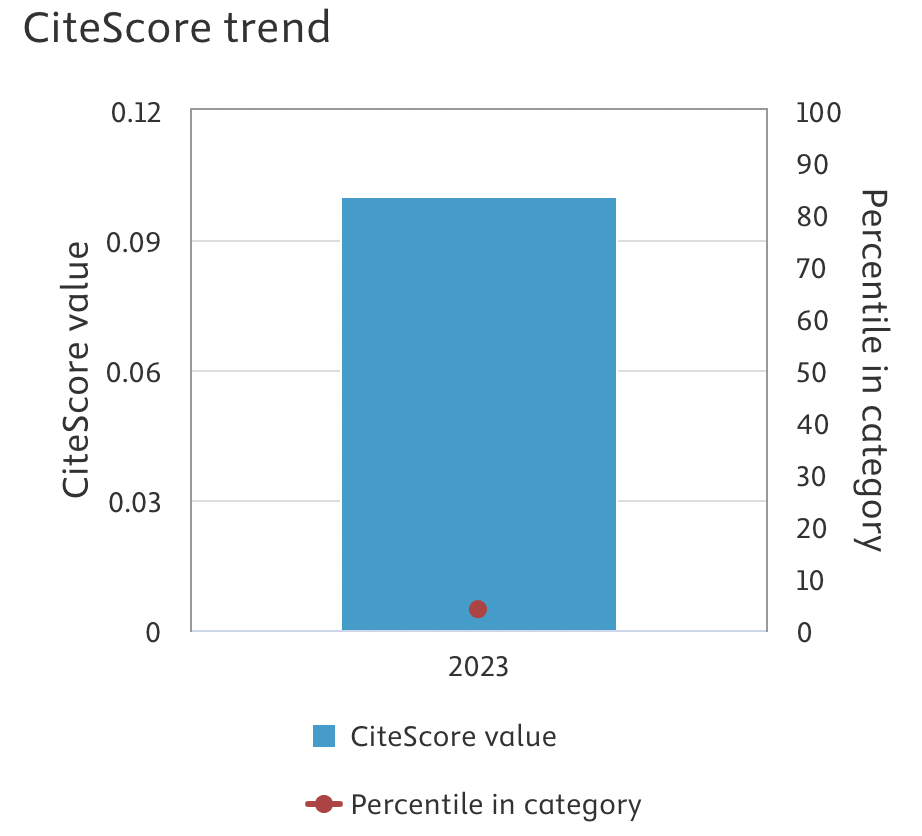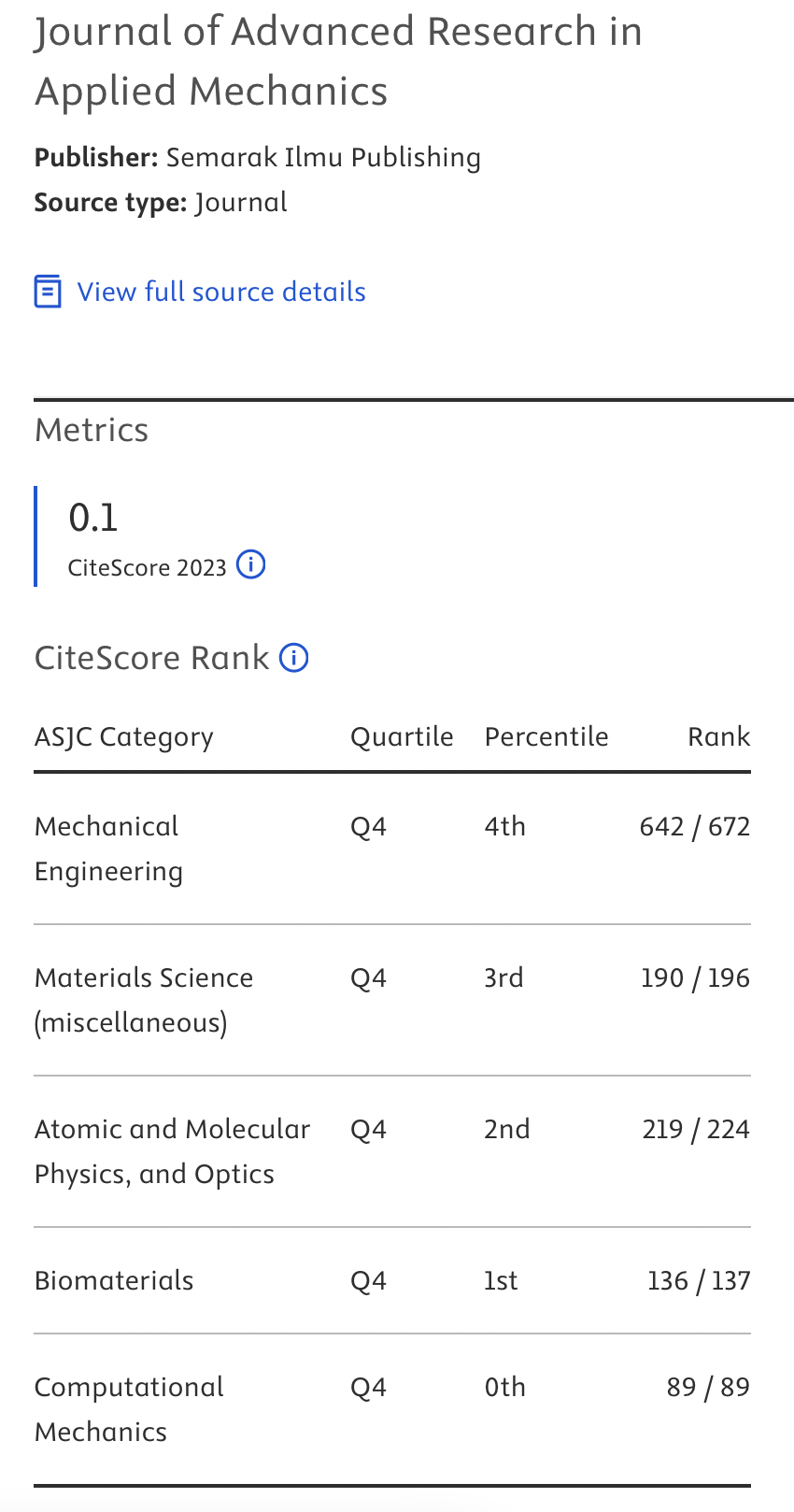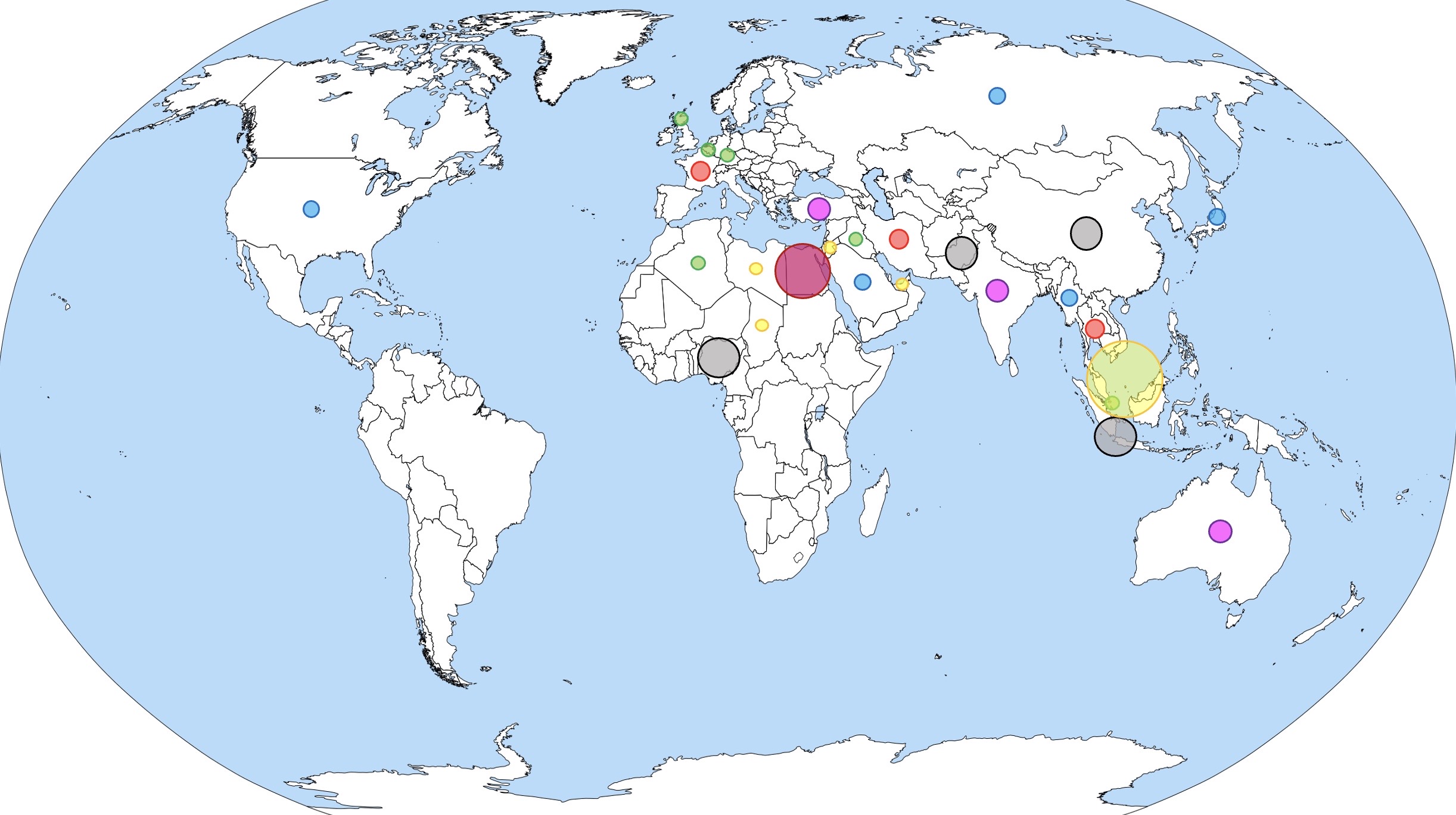Fresh and Hardened Properties of Alkali-Activated POFA-GGBFS Pastes Cured in Ambient Temperature – An Initial Mix Design
DOI:
https://doi.org/10.37934/aram.125.1.103115Keywords:
Palm Oil Fuel Ash (POFA), Ground Granulated Blast Furnace Slag, Alkali Activation, Setting Time, Workability, Compressive StrengthAbstract
Weak soils are characterised by their high compressibility and low shear strength, which requires stabilisation to improve their compaction and strength characteristics before being used for construction projects. Recent trends in soil stabilisation show an increased interest in the application of waste-derived geopolymers as low-carbon materials to address the carbon emission problem related to cement production. This paper presents the preliminary findings of using Palm Oil Fuel Ash (POFA) and Ground Granulated Blast Furnace Slag (GGBFS) binary blends as geopolymer precursor materials. These binary waste material blends were activated using alkaline solutions, namely Sodium Hydroxide (NH) and Sodium Silicate (NS), to synthesise geopolymers at ambient temperatures. Three main factors were considered for the optimisation of the geopolymer mix design, as recommended by past research: alkali equivalent (8-11.5%), activator modulus (0-0.7), and slag replacement (fixed at 30%). Alkali equivalent and activator modulus parameters were varied and tested to establish its initial and final setting times, workability and strength properties, while the slag replacement percentage was set at 30%. This study aimed to determine the most influential parameters to produce the geopolymer material with the highest compressive strength and satisfactory setting times and workability. Single-source alkali activators (NH only) used on POFA-GGBFS produced specimens with smaller flow diameters, longer initial and final setting times, and lower compressive strength than specimens activated with NH and NS. Geopolymer specimens synthesised with NH and NS produce stiffer compounds possessing higher compressive strength values and explosive-type failure modes due to their higher silica content. At ambient temperatures, TM-Mix 2 (7% alkali equivalent and 0.7 activator modulus) produced the highest compressive strength value of 67.3 MPa at 28 days curing, flow diameter of 227 mm, with the initial and final setting time of 25 minutes and 45 minutes, respectively. Consequently, the results show that the preliminary POFA-GGBFS geopolymer mix design could produce sustainably sourced geopolymer compounds with adequate strength and acceptable setting time and workability. This study is part of a current investigation to further optimise the POFA-GGBFS mix design for the purpose of weak soil stabilisation.
Downloads


























